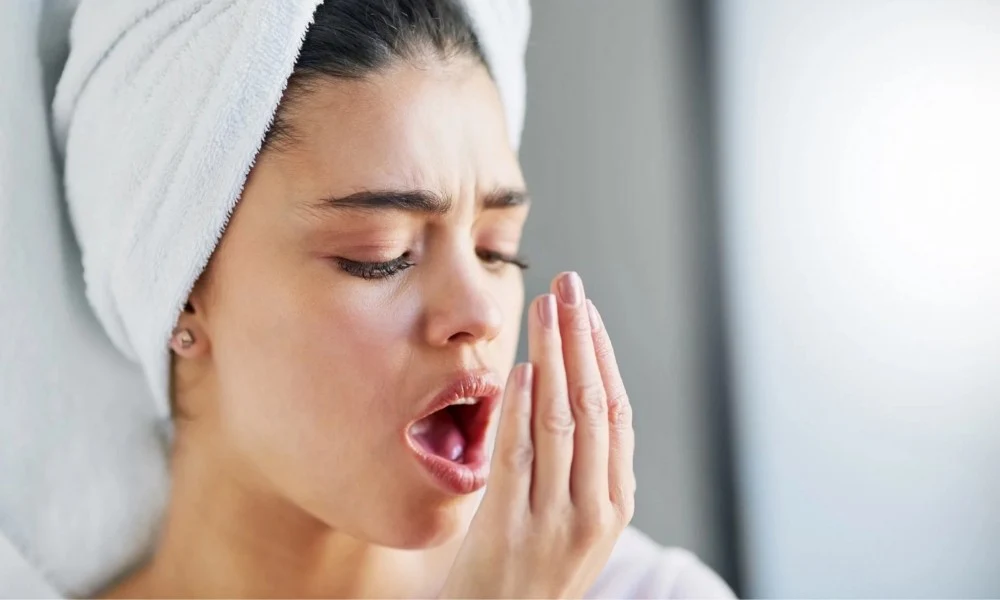Millions of people around the world suffer from halitosis or bad breath. It may become a repository of shame and fear, interfering with social situations or self-image. To aim for quality oral hygiene care and generally great health, it’s essential to comprehend the reasons behind halitosis as well as ways of stopping and treating such conditions, as recommended by a family dentist in Boston, MA.
What is Halitosis?
Chronic bad breath is a condition known as halitosis. Other odors are transient and not considered to be halitosis, whereas the breath is intense and persistent. Its origins might be in the mouth or even associated with systemic health issues that are distant from oral health.
Common Causes of Halitosis
Poor Oral Hygiene:
Poor brushing and flossing can cause food particles and bacteria to accumulate in the teeth. This accumulation of plaque leads to the formation of volatile sulfur compounds (VSCs) that cause bad breath.
Dry Mouth:
Saliva is the body’s way of not only washing away food particles and bacteria but also a hormone providing relief by sending positive messages to our brain. Anything that dries out the mouth (xerostomia) can also cause bad breath: medications such as diuretics, antihistamines, and smoking or just plain old dryness from open-mouthed breathing while sleeping.
Diet:
Strong-smelling foods (such as garlic, onions, and certain spices), can result in bad breath. In addition to the above problems, consuming a high-protein diet can also lead to malodorous scents as proteins decompose.
Tobacco Use:
Tobacco Smoking and other tobacco products can lead to bad breath and dry mouth; delay the healing of gum tissue, and increase the risk for teeth loss.
Medical Conditions:
Bad breath can be a symptom of underlying systemic conditions including respiratory infections, sinusitis, liver disease diabetes, etc.
Prevention of Halitosis
Halitosis prevention is done through good oral hygiene as well as addressing the systemic conditions that cause bad breath. Here are some tips and techniques that work well in practice:
Frequent and Proper Brushing
Floss or use an inter-dental cleaner to remove food particles and plaque in areas your toothbrush cannot reach.
Tongue Cleaning:
Scrape Tongue: Sometimes the bacteria and debris that are creating bad breath can be located on your tongue – use a tongue scraper to remove this buildup.
Stay Hydrated:

Drink lots of water to moisten your mouth and improve saliva production
Healthy Diet:
Eat a well-balanced diet that includes fruits, vegetables, and whole grains – especially foods low in cholesterol such as raw carrots or apples (foods which are natural laxatives); Avoid food from fast-food restaurants; Keep sugary snacks to the minimum.
Regular Dental Checkups:
Go to your dentist for routine cleanings and preventive dentistry so any dental problems that can cause halitosis like untreated decay or abscessed teeth are caught early.
Quit Tobacco:
It is also vital to quit smoking and using other tobacco products, which can contribute significantly towards bad breath as well as worsen whole oral health.
When to See a Dentist
Visit a dentist or doctor if you have bad breath that doesn’t improve after making these changes to your hygiene routine. Diagnosis and treatment need to be done by the dentist. Either way, early intervention can help prevent much more serious dental and health issues all the while giving you back confidence.
To conclude, bad Breath is a very common but easily preventable condition. As long as you can understand why it happens and how to stop the smell before it starts, your breath can be fresh. If you have any problems with persistent bad breath, do not be shy to ask a doctor.

